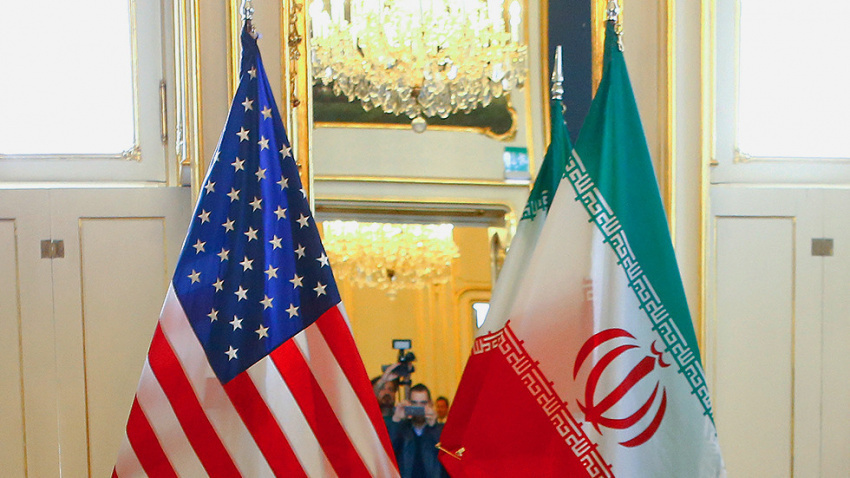Lingering Uncertainty: Iran's Nuclear Program and Elusive Negotiations with the West

Lingering Uncertainty: Iran's Nuclear Program and Elusive Negotiations with the West
The complex relationship between Iran and the West continues to experience fluctuations, leaving the future far from certain. As a result, interpreting reports of potential behind-the-scenes agreements or predicting the emergence of discord leading to worst-case scenarios remains challenging. Both sides proceed cautiously, taking measured steps in their pursuit of resolution.
The recent display of cautious behavior by Iran and the West is exemplified by the European troika's (comprising France, Germany, and the United Kingdom) decision to extend Iran's missile sanctions beyond October 18. As per the 2015 JCPOA agreement and United Nations Security Council Resolution 2231, Iran was expected to face no obstacles in developing its ballistic missiles by the end of the agreement's eighth year, provided they were not equipped with nuclear warheads. However, the troika seeks to retain sanctions related to Iran's missile development program. This action has been deemed a violation of the JCPOA and the commitments made by all parties involved in negotiations with Tehran. Could the troika's decision, backed by Washington, be a deliberate attempt to disrupt previous agreements? Has the troika replaced its decision with the intention of activating the trigger mechanism? In such a scenario, despite apparent drastic action, the West appears to be avoiding the complete closure of dialogue channels with Tehran. Tehran's cautious reaction further reinforces this notion.
Nasser Kanani, the spokesperson for the Ministry of Foreign Affairs, has refrained from offering any immediate response on behalf of Tehran to the European troika's decision, reserving it for the designated date of October 26. In other words, Tehran has adopted a patient approach. Despite the exchange of critical remarks and opposition between the parties, caution remains the preferred course of action. Neither has the troika activated the trigger mechanism nor has Tehran reduced its level of JCPOA commitments, as has been done in the past.
Another event that has significantly impacted the dynamics between Iran and the West, particularly Tehran and Washington, is the controversial withdrawal of Rob Malley from the negotiations aimed at resolving differences and tensions between the two sides. Malley's dismissal marks a pivotal moment that will shape the future of ongoing negotiations, not only between Tehran and Washington but also between Iran and the West as a whole. Opponents of resuming JCPOA negotiations have questioned Malley’s competence as a special representative of the United States government. Critics, especially American extremists and the Israeli government, argue that Malley lacks the credibility to negotiate with Tehran due to his political inclinations and his stance on Middle East developments, which may not necessarily align with the demands of Israel and America's Middle Eastern allies.
These doubts grew stronger when news of Malley's successful negotiations with Amir Saeed Iravani, Iran's representative at the United Nations, started circulating. Iravani is widely recognized as one of Iran's influential diplomats in the realm of foreign policy. The negotiations in New York held the potential to offer a clearer path, at least in terms of reducing or managing the tensions between Tehran and Washington. However, opponents of the talks swiftly took action, aiming to achieve three objectives. Firstly, they sought to replace Malley with a hard-line negotiator like Richard Nephew, known for his more rigid positions against Tehran. Nephew, the author of the book "The Art of Sanctions," had previously served as Malley's deputy, and some regard him as the mastermind behind stringent sanctions against Iran. Secondly, they aimed to transfer the responsibility of the nuclear file and negotiations with Tehran from the Ministry of Foreign Affairs, under the leadership of Anthony Blinken, to Jake Sullivan, the National Security Adviser. Lastly, they intended to reframe Iran's case as a matter of security within the international community.
Malley's dismissal and the subsequent negotiations between Ali Bagheri Kani and Brett McGurk, both known for their extremist views, in Oman have introduced new variables to the Tehran-Washington talks. These differences encompass issues such as prisoners of dual citizenship and the level of Washington's flexibility in reducing sanctions. These developments could potentially undermine the agreements reached in New York.
The European troika's decision to maintain sanctions related to Iran's missile program is another step taken by opponents of the JCPOA to emphasize the security nature of the dispute between Tehran and the international community. Interestingly, the European representatives of the 4+1 group engaged in new talks with Bagheri Kani in Oman, raising hopes for the creation of new possibilities in resolving the differences between Tehran and the West.
Throughout the ups and downs of the Tehran-West relationship, extremist currents have consistently cast a shadow, preventing a resolution from drawing near. Consequently, both parties cautiously navigate their steps, striving to prevent the disputes from erupting into a full-blown conflict.

